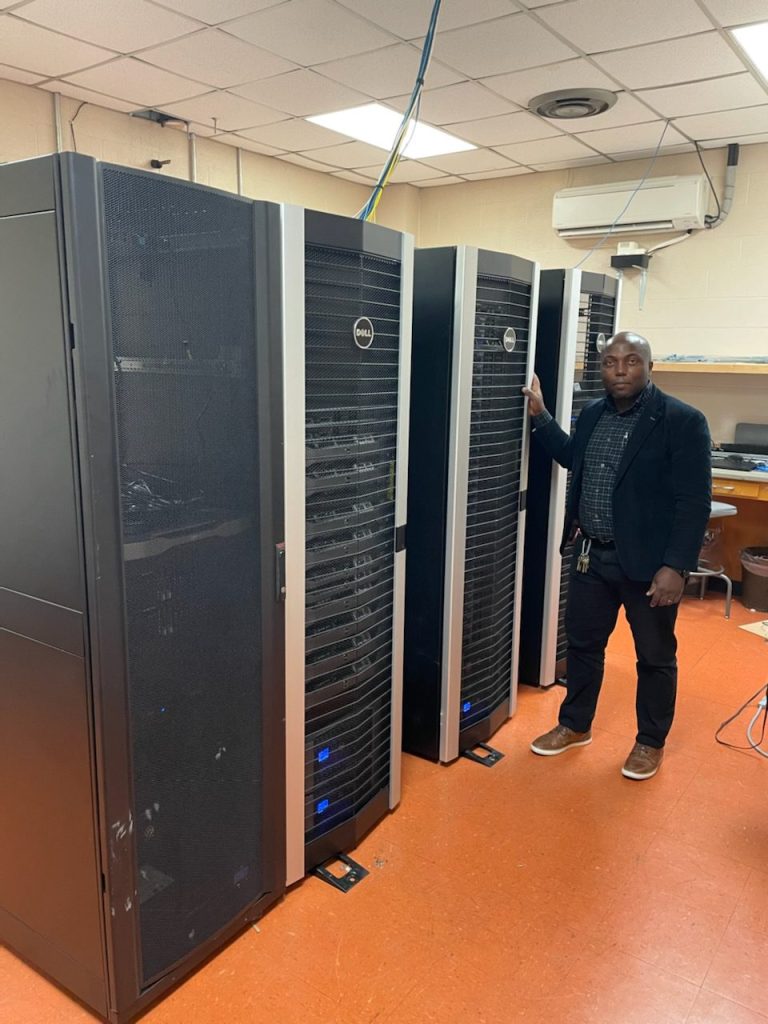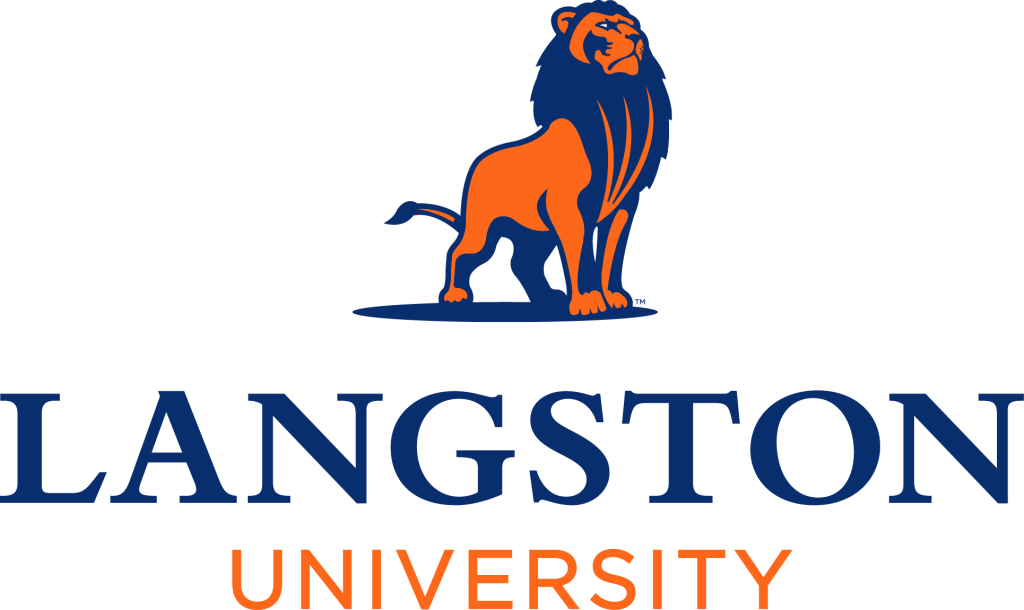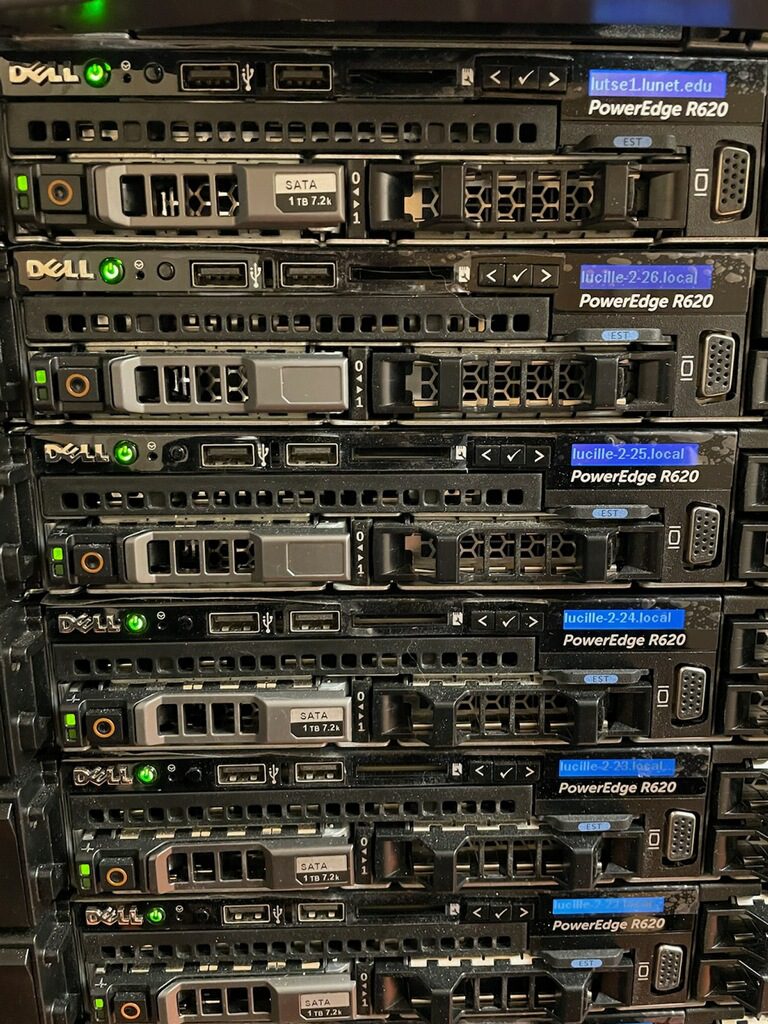Langston University Upgrades Supercomputer Lucille, Enhancing Research Engagements
Over the last year, Langston University and the Extreme Science and Engineering Discovery Environment’s Cyberinfrastructure Resource Integration (XSEDE XCRI) team collaborated to enhance Langston’s high-performance computing system at the Langston University Computing Center for Research and Education (LUCCRE), known as “Lucille.”
Lucille is a tightly knit cluster of servers configured to provide high-performance and high-throughput computing services (HPC/HTC). Lucille supports local interdisciplinary exploration in bioinformatics, high-energy physical science, and applied arithmetic for Langston’s faculty and students.
Lucille grew from a partnership between two Langston faculty. In 2010, Dr. Franklin Fondjo Fotou, Chair Department of Technology and Faculty, partnered with Dr. Joel M. Snow, former high-energy physics faculty and researcher, at Langston and formed the LUCCRE. They identified the need for funding a campus supercomputer.
According to Fondjo, before Lucille was established, each professor was using old desktop computers and open-source software to construct cluster computers for various applications while contributing to the Snow’s high-energy physics project. Both Fondjo and Snow were working separately and needed a way to implement HPC/HTC at Langston.
Langston’s Chief Information Officer Pritchard Moncriffe donated seven obsolete computers recovered during the a faculty office upgrade. These were used as the first cluster of LUCCRE.
“This brought Dr. Snow and I together to work on the clusters,” said Fondjo.
Langston has come a long way from that first cluster. Through their combined expertise, Fondjo and Snow submitted their first National Science Foundation (NSF) Major Research Infrastructure grant for $250,000 in 2011. This award funded the purchase and deployment of a Dell cluster that became Lucille in 2013.
Statistically, Lucille supports 160 TBs of storage. Lucille can deliver a maximum of 18.6 Teraflops (Tflops) CPU single-precision computing power and an additional 14 TFlops of graphics processing unit (GPU) computing. Lucille contributes to both internal and external research projects. For local research, Langson’s faculty engages in computational research and training while contributing to a multi-country high-energy physics research experiment through the ATLAS project.
ATLAS is conducted at the Large Haldron Collider at the European Organization for Nuclear Research, also known as CERN. ATLAS is one of the largest physical science collaborations ever, with more than 3,000 participating physicists from 181 universities and laboratories in 38 different countries. Lucille enables Langston to participate in this global research project.
Lucille is beneficial to student learning and research, because students gain experience by helping set up Lucille’s hardware and software. Students are also trained in the different techniques used in HPC/HTC research. HPC/HTC research is the current and future go-to tool for advanced research. Lucille places Langston as a participant and contributor in the field of HPC/HTC.
After Snow’s retirement, Fondjo took on the challenge of managing the LUCCRE while serving as a full-time faculty member and department chair. One of his first challenges was upgrading Lucille. After operating smoothly from 2013-2020, Lucille’s system started to degrade and needed permanent maintenance and a hardware upgrade, so Fondjo sought to upgrade the system.
Dr. Dana Brunson with Internet2 advised Fondjo to reach out to the XSEDE XCRI team. During the summer of 2020, Fondjo reached out to the XSEDE to ask for help through their XCRI support program. XCRI is a valuable service for small institutions running a local cluster. The team helps campuses manage their local computing and storage resources.
The XCRI team, through Eric Coulter, assisted Fondjo through Zoom with migrating from Rocks to OpenHPC cluster management during the COVID-19 pandemic. The Rocks cluster toolkit was not updating fast enough to meet Langston’s requirements, so they decided to move to OpenHPC with Ansible automation. The upgrade provided a JupyterHub web portal with a highly flexible environment that meets Langston’s HPC users’ needs.
In addition to the XCRI team, other resources such as OneNet, OneOCII, and the OneOklahoma Friction Free Network (OFFN) contribute to Lucille’s success. For example, the OFFN network, through Dr. Henry Neeman at the University of Oklahoma and Brunson’s initiative, provided network equipment and two 10Gbps dedicated network connections from OFFN and OneNet to the LUCCRE. This allowed Langston to collaborate with other regional institutions through a high-speed research network. Without OFFN funding and collaboration, along with OneNet’s support, the high-speed connection to Lucille wouldn’t be possible.
“It was very beneficial and helped grow our network infrastructure,” said Fondjo.
The OFFN network is managed by OneNet and is designed to meet the research computing needs of Oklahoma’s higher education institutions. OneNet also provides Langston’s primary internet connection, along with other technology services.
“OneNet is Oklahoma’s partner in research and education,” said Brian Burkhart, OneNet’s senior director of network systems. “Our job is to ensure our state’s higher education institutions have the high-speed connections and data transfer capabilities required to be leaders in their scientific research initiatives.”
Fondjo is very happy with the OneNet partnership. “OneNet is the partner you need when you’re in the field of HPC. OneNet is the state service provider, and from the beginning of our work at LUCCRE, OneNet has continuously supported us,” Fondjo said. “Whenever I need their help, they are always there to support me.”
Langston also participates in the OneOklahoma Cyberinfrastructure Initiative (OneOCII). A statewide collaboration to expand cyberinfrastructure resources and share expertise and education among academic organizations. As a longtime member of OneOCII, Fondjo appreciates the group support for Langston’s research initiatives.
“I cannot say how valuable that group is because the value they have given us is uncounted for,” Fondjo said.
Thanks to the help of these groups, the future is bright for Lucille, LUCCRE and high-performance computing at Langston.
“We submitted a $400,000 grant proposal to NSF Campus Cyberinfrastructure program in 2021. If funded, it will give us a new set of equipment that can help expand the life of Lucille and LUCCRE,” Fondjo concluded. “Hopefully, if that funding comes into place it will allow us to set up a brand new system that will last as long as Lucille.”
Story and photos by King Mason, Strategic Communications Intern, Fall 2021

Dr. Franklin Fondjo
“OneNet is the partner you need when you’re in the field of HPC. OneNet is the state service provider, and from the beginning of our work at LUCCRE, OneNet has continuously supported us. Whenever I need their help, they are always there to support me.” – Dr. Franklin Fondjo, Langston University


